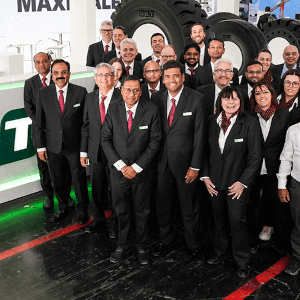The successful operation of a modern warehouse is dependent on multiple variables interacting in a well-coordinated process. The humble tire is one of these items that is sometimes disregarded yet is vital to overall efficiency. When we consider the machinery that powers a warehouse, such as forklifts, pallet jacks, and other ground-based transportation equipment, it is clear that their tires are key. The topic of this article will cover the significance of tires in guaranteeing warehouse efficiency.
Safety First
Safety is paramount in any warehouse. A worn-out or broken tire can cause grip loss, making forklifts more prone to slipping, especially on wet or uneven roads. This may result in incidents that endanger personnel and damage both products and machinery.
Increased Productivity
The speed and agility with which equipment can move about the warehouse are directly affected by tire quality. Efficient tires guarantee that forklifts and other vehicles can transfer products from one location to another swiftly and without incident. The time saved in these micro-transactions can build up over a day, increasing warehouse efficiency.
Extended Equipment Life
Good-quality tires uniformly distribute load weight, saving strain on the machines. Using low-quality or ill-fitting tires can result in uneven weight distribution, causing wear and tear on equipment. This reduces the machine’s lifespan and can result in more significant maintenance expenditures.
Enhanced Fuel Efficiency
Tire efficiency can impact fuel consumption in equipment that runs on petrol. Underinflated or worn-down tires can increase rolling resistance, causing machines to work harder and burn more fuel. On the other hand, tires that are properly maintained can lower this resistance, resulting in improved fuel economy and, as a result, cost savings.
Reduced Operational Costs
When tires are in good condition, they require fewer replacements or less maintenance. Because high-quality tires last longer, investing in them can result in considerable long-term cost savings. Furthermore, adequate tires can reduce the expenses associated with damaged items by preventing possible harm to commodities.
Effect on Floor Conditions
The frequent movement of heavy machinery causes constant wear and tear on warehouse floors. Tires can have a considerable impact on how quickly these floors disintegrate. Non-marking tires, for example, can help to keep floors clean by preventing black and skid marks. In addition, adopting the appropriate tire for the floor type can reduce wear and tear, extending the life of the flooring.
Environmental Considerations
Sustainability is becoming increasingly important in modern warehouses. High-quality, long-lasting tires minimize the frequency of tire changes, decreasing waste, but they can also be produced from environmentally friendly materials. Some tire manufacturers produce tires from renewable resources and incorporate recycling into their manufacturing processes.
Ensure Optimal Loading
The weight and balance of loaded products are essential factors in warehouse operations. Tires built for specific weight capabilities guarantee that equipment may transport weights safely and effectively. Overloading tires or utilizing tires unsuited for specified weight capabilities can result in inefficiencies, significant damage, and safety issues.
Choosing the Appropriate Tire
Given the different roles tires play in warehouse productivity, selecting the proper tire for your needs is critical. Here are a few pointers:
Determine your needs - select a tire that meets your requirements, depending on the products kept, the floor conditions, and the machinery utilized. For example, if you own a cold storage facility, you would want tires that resist low temperatures.
Regular Maintenance - regularly check tire pressure, wear and tear, and the overall condition. Replace worn or damaged tires as soon as possible.
Stay Updated - like all sectors, the tire business is constantly evolving. Keep an eye out for new technologies or materials that might help you improve your efficiency even further.
While tires may seem insignificant in warehouse operations, they are critical to ensure safety, productivity, and efficiency. Investing time, effort, and resources in tire maintenance and selection is about more than ideal performance; it is also about saving money, assuring safety, and supporting sustainable practices.
Our BKT-recommended forklift tire is the PL 801. You can check it out on our website here.






.jpg)